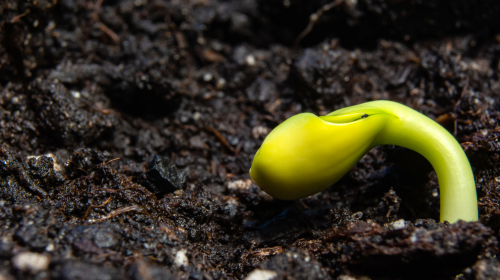
11 July
Last week, the Sustainable Soils Alliance team attended Groundswell Regenerative Agriculture Festival, which provided a forum for farmers, growers, and food system agents to discuss soil health and regenerative farming systems. Soil was a major focus of discussions at the festival - keep an eye out for a blog sharing our thoughts and key takeaways which will be published soon.
The Sustainable Farming Incentive (SFI) scheme reopened for applications this week, offering a limited second chance for eligible farmers to apply. However, only farmers within specific 'exception groups' are eligible, including applicants who previously reported system issues to the Rural Payments Agency (RPA) and who have unfinished applications between 12 January and 11 March 2025.
The Department for Environment Food & Rural Affairs (Defra) also announced this week that the Capital Grants offer, funding for capital items to help farmers carry out SFI actions, will receive £150 million in new funding. Applications to the Capital Grants scheme reopened on the 3rd of July 2025.
Government ministers have ignored Environment Agency pleas to tighten rules on the use of sludge fertiliser for three years, as millions of tonnes of sewage sludge is spread on UK farms annually despite the regulator finding unsafe levels of ‘forever chemicals’ in many biosolid fertilisers which could severely damage soil and human health.
Weetabix Food Company has recorded a 50% reduction in on-farm emissions among farmers who participated in a new regenerative soil health trial. Farmers participating in the trial were supported to reduce their use of synthetic fertiliser, such as planting cover crops, no-till agriculture, and using alternative fertilisers made with molasses and natural manures.
With the curriculum under review for the first time in over a decade, the National Farmers’ Union (NFU) is leading a consortium which is calling on the Government to improve the quality of how food and farming is taught in schools, including better education on soil functions, threats, and management.
Researchers in Japan have discovered a novel method for measuring soil microbial biomass. The new methodology uses water-extractable organic matter (WEOM) from air-dried samples. This methodology is not only thought to be more accurate, but it also eliminates the need for toxic solvents typically used in traditional methods of measuring soil microbial biomass.
Jonathan Hodgson, who farms 285 hectares of clay soils at Great Newsome Farm in East Yorkshire, has won the 2025 Soil Farmer of the Year competition, presented at Groundswell Festival, for his commitment to soil health improvement through strip tillage, companion cropping, and cover crops.